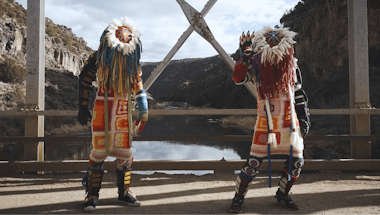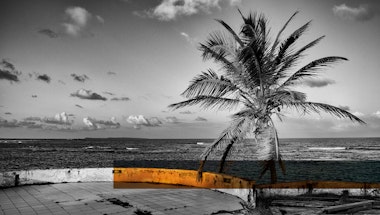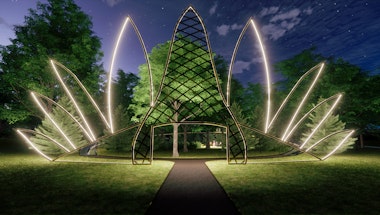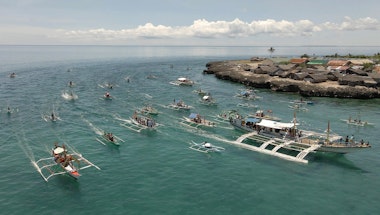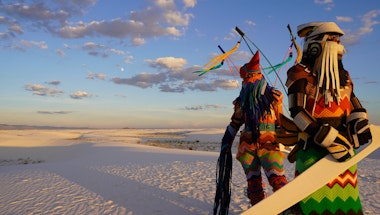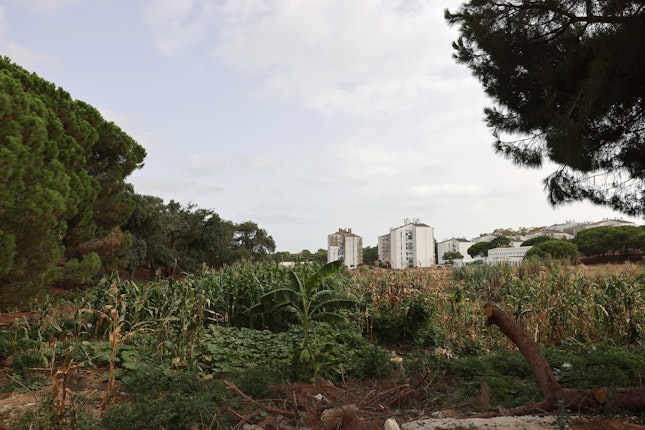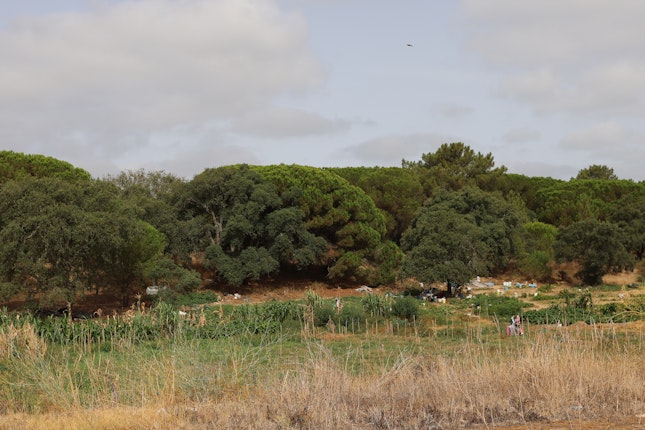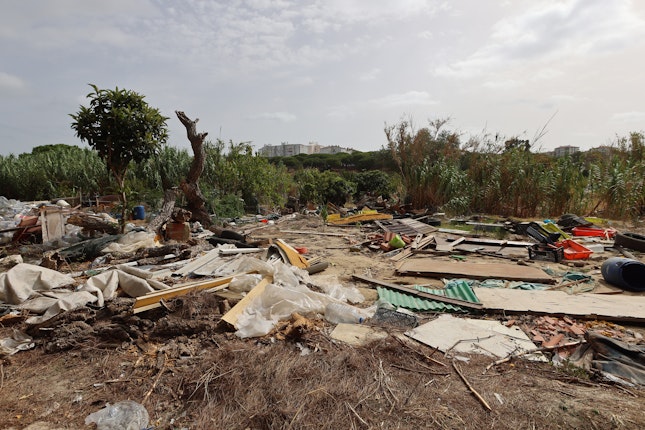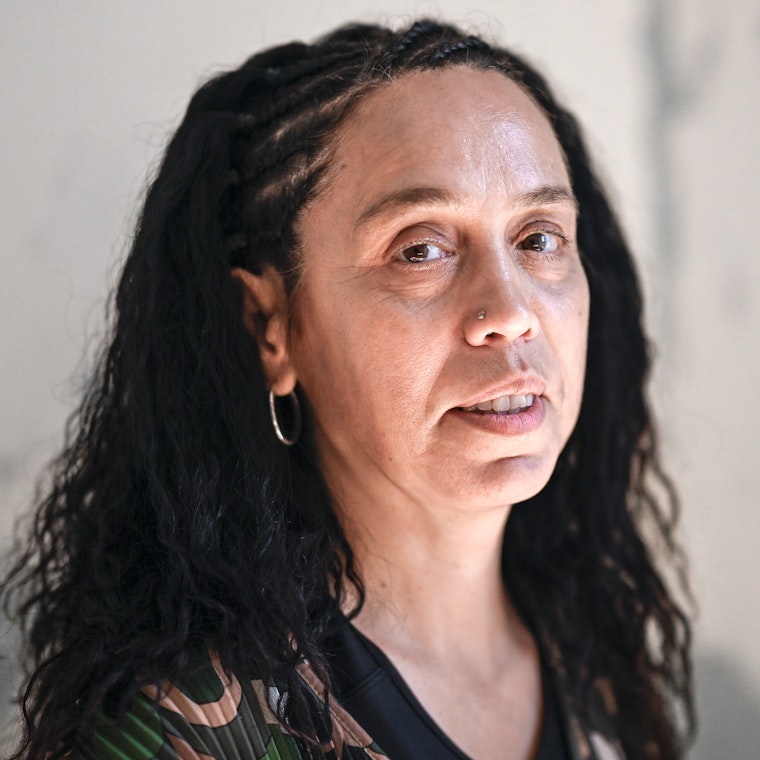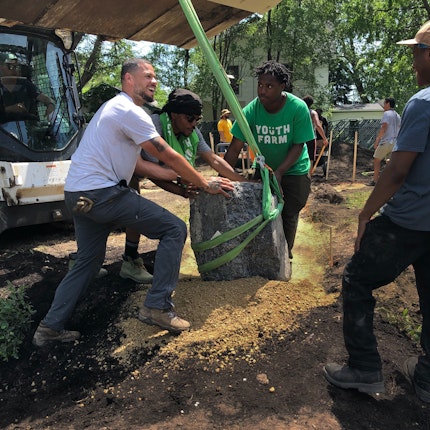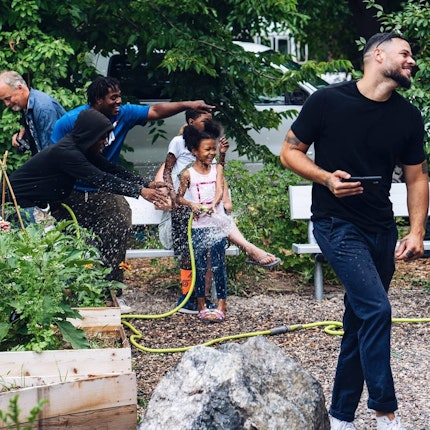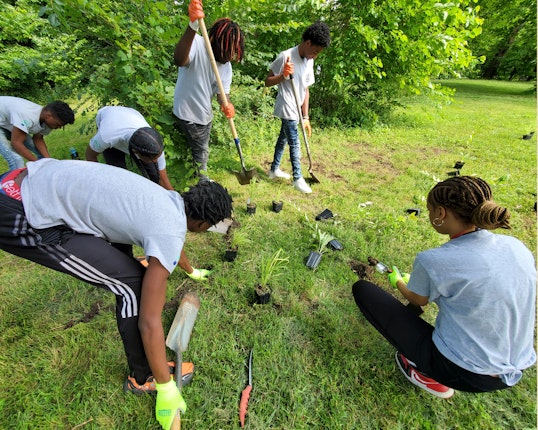
Revitalizing Shared Space
Mónica de Miranda develops films that blur the line between documentary and fiction, reflecting the intersection of politics, gender, memory, and space—from her native Angola to her current residence in Portugal. Her work seeks to dismantle false perceptions of Lisbon as a European paradise by holding up a mirror to the many African migrants living along the outskirts of the city, in neighborhoods facing the harmful impacts of racialized and environmentally detrimental gentrification. Some have been removed entirely.
For the Soros Arts Fellowship, she will organize Where cities are invisible, gardens grow, a film and archive developed in collaboration with these African migrant communities working in reclaimed community gardens. Many of these gardens exist along the historic military road that once blocked the French and English from invading but now blocks migrants from the rest of the city.
“Cities carry on colonial legacy, as migrants now are forced into invisible ones, making these rising gardens land that reclaims a place of freedom and resistance for migrant communities. Looking at the land as a place that contains memory and history, decolonizing it is the liberation of the people. The defense of nature is a defense of humanity.”
— Mónica de Miranda
This theme of shared trauma inflicted on both the natural world and the communities that live closely with it carries across many of the fellows’ works: from hurricanes and typhoons to urban gardens. The idea that these wounds are shared and can best be healed together drives many of the projects and serves as another model through which the world can better learn to repair the impacts of climate change.
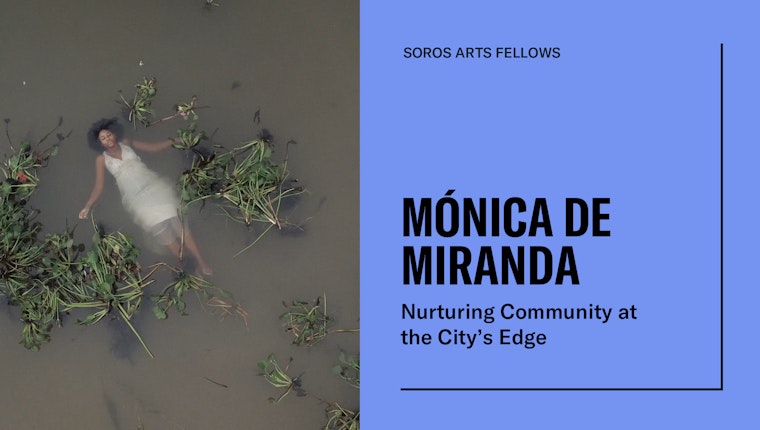
Jordan Weber’s work with Black communities across the United States, focused in the Midwest, is also built around this concept. Weber examines trauma healing for Black communities that have dealt with violent structural racism, from attacks by police to what he terms the environmental apartheid from massive agribusiness and factory pollution.
For the Soros Arts Fellowship, he will produce The Detroit Remediation Forest with Canfield, a local community devasted by racist schemes to abolish Black home ownership, as well as the expansion of the Chrysler automotive assembly factory emitting harmful particulate matter allowed by lax regulations. Weber will work with community leaders to revitalize a square acre of forest as an air detoxification zone and environmental learning space geared toward Black youth. The project will simultaneously heal the air—as particulate matter comes into contact with conifer trees and shrubs—while providing a community space for connection with nature. The entrance of the forest will be “crowned” by an architectural structure based on West African constructs and include particulate matter trackers, reflecting heritage and beauty alongside scientific progress owned by the community.
In both Lisbon and Detroit, these parks and gardens are cared for by communities while simultaneously taking care of them. Collectively, residents garden and develop the spaces, creating green and natural environments in places where that was not previously possible. Those spaces in turn feed communities, help to detoxify air and water, and create an environment for reflection, learning, shared stories, and connection. This relationship helps redefine how urban communities connect with nature and the land, even when governments have attempted to deny the bond.
